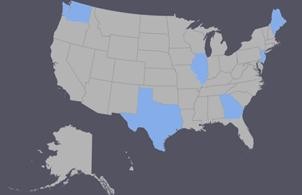

Ongoing changes to immigration policy threaten immigrant-origin students’ socioemotional well-being, exacerbating existing inequalities between them and their peers. These policies also impact educators working to develop practices to serve these students. The study asks: How do public school educators interpret and respond to rapidly-changing immigration policies as they develop equitable practices when serving immigrant-origin students? As an interdisciplinary research team, we have been conducting a longitudinal mixed-methods study of educator practices in six US school districts. Through qualitative case studies, survey research, and collaborative design-based implementation research, we have been documenting and developing educator practices for immigrant-origin students. During the COVID-19 pandemic, our work shifted to emphasize more collaborative support to district partners rather than engage in the in-depth research activities initially set out. Concurrently, we documented the shift in practices necessitated by the pandemic and in response to the evolving needs of immigrant communities in the midst of the crisis.
Our mixed-methods study seeks to describe and amplify promising practices used by educators across roles, levels, and districts.
Educator perspectives about immigrant-origin students, school safety and climate, and educator practices via all-staff surveys, interviews, and fieldnotes. We also convened on campus (prior to the pandemic) to collaborate across districts to design practices in four areas, "Welcoming Newcomers", "Pipelines for undocumented students", Family-School Relationships, and Staffing.
Based on findings from analyses, we found that educators’ practices in response to threats to immigrant-origin youth fell into four domains: (a) signaling affirmation, (b) building shared knowledge and capacity, (c) finding and mobilizing resources, and (d) creating space for conversation. Our all-staff survey highlighted how all of these practices took place across roles and levels within the district, as educators, leaders, and other staff engaged in them.
3
district leaders in each district engaged in our BC Convening and ongoing collaborations throughout the pandemic
6
Districts in 6 distinct contexts of reception were included in the research
